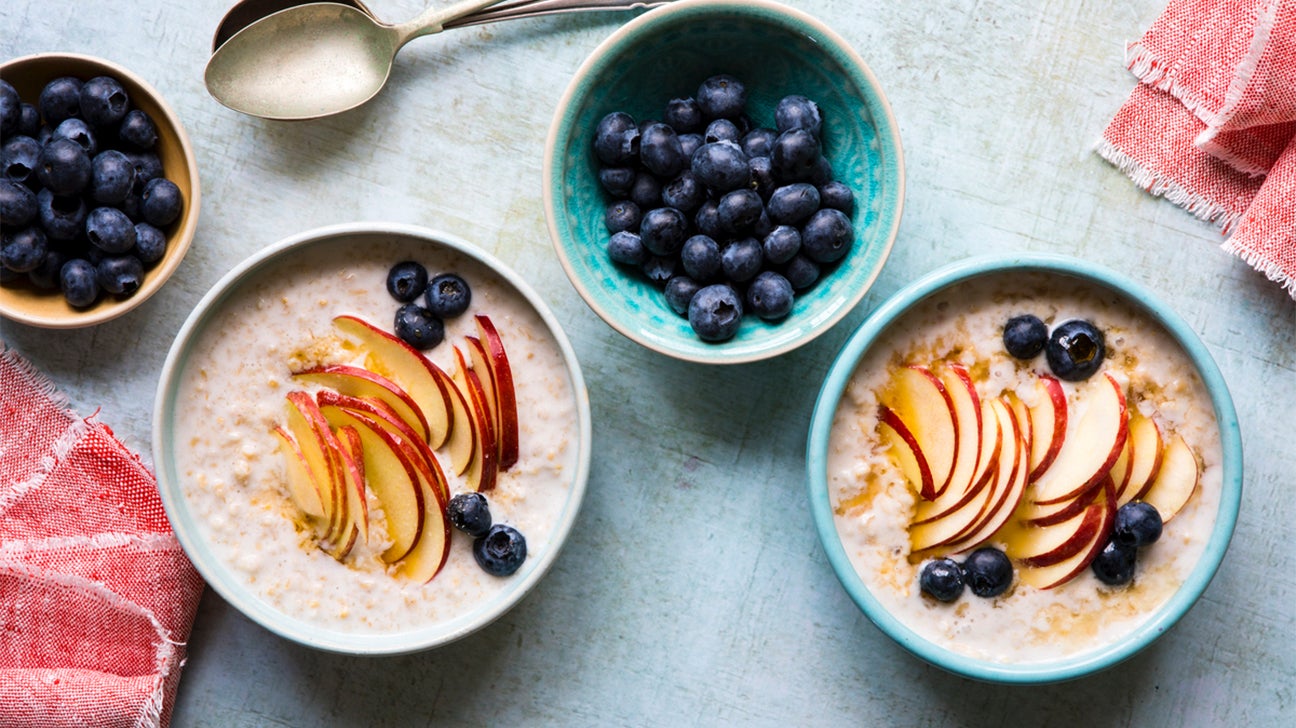
The benefits of fiber can differ from food to food. Studio Create/Offset Images
- Experts say most people in the United States don’t have enough fiber in their diet.
- They add that the benefits of fiber can be different from person to person.
- They also note that fiber’s benefits can differ from food to food.
- They recommend people get their fiber from food instead of supplements.
The health benefits of fiber can vary between different people and different food.
That’s according to a new study in which researchers found that the benefits of fiber can depend on the type of fiber, the amount of fiber, and the individual consuming the fiber.
“Our results demonstrate that the physiological, microbial, and molecular effects of individual fibers differ substantially,” Michael Snyder, PhD, senior author of the study and a geneticist at Stanford School of Medicine in California, said in a press release.
Fibers can vary based on length, solubility, and other factors. Snyder argues understanding how different people react to the same kind of fiber is important.
“There is a need for determining the unadulterated effects of individual fibers on the microbiome and for establishing associated health biomarkers, ideally by testing different fibers on the same individuals,” he said.
“Our results demonstrate the tantalizing prospect of using targeted fibers, mediated by the microbiome, to drive health and systems biology in a predictable, personalized direction,” he added.
Details of the study
In undertaking the research, Snyder and his colleagues investigated the effect of two common forms of soluble fiber supplements.
Arabinoxylan is a fiber commonly found in whole grains. Long-chain inulin is a fiber found in chicory root and onions.
The researchers enlisted 18 people to participate in the study. They were given 10 grams of fiber every day in the first week of the study, 20 grams every day in the second week, and 30 grams every day in the third week.
The researchers found that on average, participants who took arabinoxylan had a noticeable reduction in LDL cholesterol levels due to an increase in bile acid production.
Those who took low doses of long-chain inulin on average saw a slight decrease in inflammatory markers as well as an increase in certain kinds of gut microbes that are thought to be beneficial. Higher doses of long-change inulin were associated with increased inflammation and higher liver enzymes, which can be harmful.
For arabinoxylan, despite the fact all participants took the same dosage of the fiber, the researchers reported that individual responses to supplementation varied, with some people not experiencing any changes in cholesterol.
Reaction to the study
Dana Hunnes, Ph.D., MPH, RD, a senior dietician at the University of California Los Angeles and author of the book “Recipe for Survival,” says the findings of the study aren’t surprising.
“Nutrition and how we respond to various doses of certain nutrients is not one-size-fits-all. We all have different metabolisms, different microbiomes, even different needs depending on our body habitus (size/muscle/fat, etc). So, it is not surprising to me that different people would react differently to a variety of fibers and their doses,” Hunnes told Healthline.
“For people whose cholesterol is primarily affected by diet, this added fiber would likely have an effect. For those where their high cholesterol levels are more familial-based/inherited, it would seem more likely to have less of an effect,” she added.
How much fiber is enough?
The American Academy of Nutrition and Dietetics advises that the ideal intake of fiber is 14 grams for every 1,000 calories consumed.
For men, this is roughly 38 grams and for women 25 grams.
Lauri Wright, Ph.D., RDN, LDN, the chair of the Department of Nutrition & Dietetics at the University of North Florida, says while there are many advantages to consuming fiber, most people in the United States aren’t getting enough.
“There are many benefits of fiber. Soluble fiber, found in foods such as oats, beans, and fruits, helps lower blood cholesterol and glucose levels. Insoluble fiber, found in foods such as whole wheat grains and vegetables, aids in digestion. Both types of fiber are natural appetite suppressants,” Wright told Healthline.
“On average, Americans only consume about 15 grams a day,” she noted.
Where to get your fiber
When it comes to getting enough fiber, both Wright and Hunnes say it’s best to look first at food sources before using fiber supplements.
“In general, I recommend people get their fiber from foods and not from supplements, as there are so many additional benefits – health and environmental – from eating a wide variety of high-fiber foods,” Hunnes said.
Wright says some easy ways to increase fiber intake are to switch to whole grain, add beans to soups or salads, eat cereals with five or more grams of fiber per serving, and snack on high fiber foods such as popcorn, hummus, and carrots.
“Food sources are the best source because you not only get the fiber but also the taste and additional nutrients found in these healthful foods,” she said.
This article was from Healthline and was legally licensed through the Industry Dive Content Marketplace. Please direct all licensing questions to legal@industrydive.com.
![]()

